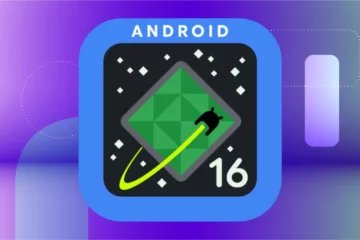Your landlines represent a new frontier for artificial intelligence. The firm that created ChatGPT, OpenAI, has unveiled a feature that lets customers communicate with its AI-powered assistant via phone calls. And that’s not all.
Additionally, ChatGPT is coming to WhatsApp, giving one of the most widely used messaging apps in the world a conversational AI experience.
Imagine contacting a number and receiving real-time, AI-powered answers to your questions. This is now feasible thanks to OpenAI’s introduction of ChatGPT for landlines. When you dial 1-800-CHATGPT (1-800-242-8478), the AI assistant will greet you.
Users can ask questions, get translations, or ask for help using this voice-only version of ChatGPT’s Advanced Voice Mode without the need for a sophisticated device or internet access.
What Makes It Unique?
- Accessibility: To use it, you don’t even need an account or a smartphone or app.
- Free Trial: OpenAI offers 15 minutes of free calling for U.S. users, after which the call ceases. There are standard carrier fees.
- Simple Functionality: There are no sophisticated multimodal features here; instead, the function concentrates on simple activities like interpreting texts and responding to queries.
OpenAI is reaching an audience that might not otherwise have access to cutting-edge technology by introducing AI to landlines.
ChatGPT on WhatsApp
With the release of ChatGPT on WhatsApp, users may now communicate with the AI assistant in a simple manner. There is a catch: users are subject to a daily restriction, even if there is no account requirement like with the landline version.
What Can You Do on WhatsApp?
- Have a text-based dialogue with each other.
- Get suggestions, ask questions, or just have a fun conversation.
- Get alerts when your daily use limit is approaching.
Although no release date has been set, OpenAI is already working on improvements, such as image analysis and web search capabilities, even though the WhatsApp connection is still quite basic.
Why These Features Matter
The goal of these upgrades, explains OpenAI’s Chief Product Officer Kevin Weil, is to make artificial general intelligence (AGI) available to anyone.
During a livestream, Weil explained, “Our mission is to make AI beneficial to all of humanity. Bringing ChatGPT to phones and WhatsApp is a step toward that goal.”
WhatsApp, OpenAI is making AI more inclusive, especially for individuals without access to powerful gadgets or high-speed internet.
A Project Born from Innovation
Interestingly, both the landline and WhatsApp integrations originated as part of a hack week project. In just a few weeks, the team developed these features and launched them to the public. “We loved it, and they hustled really hard to ship it,” explained Weil.
This quick innovation demonstrates OpenAI’s dedication to provide AI tools to a wider audience in innovative and useful ways.
What’s Next for ChatGPT?
OpenAI isn’t done yet. The following could be included in future WhatsApp integration updates:
- Image Analysis: Imagine shooting a photo and asking ChatGPT to explain it.
- Web search: Access up-to-date information straight from the web without ever leaving the chat window.
With these additions, ChatGPT should become even more flexible and intuitive.


